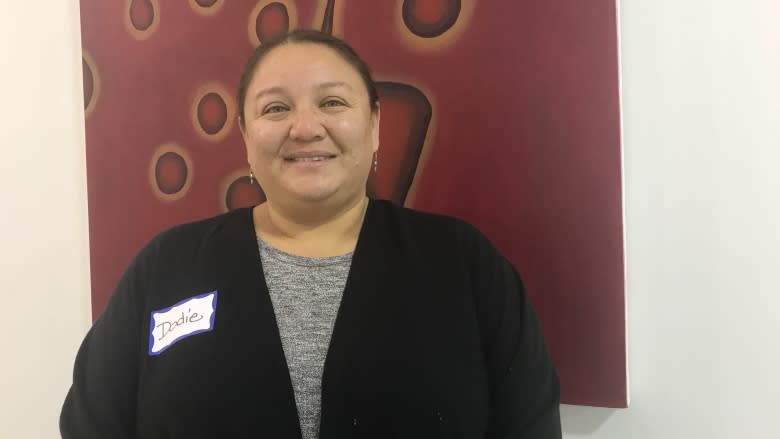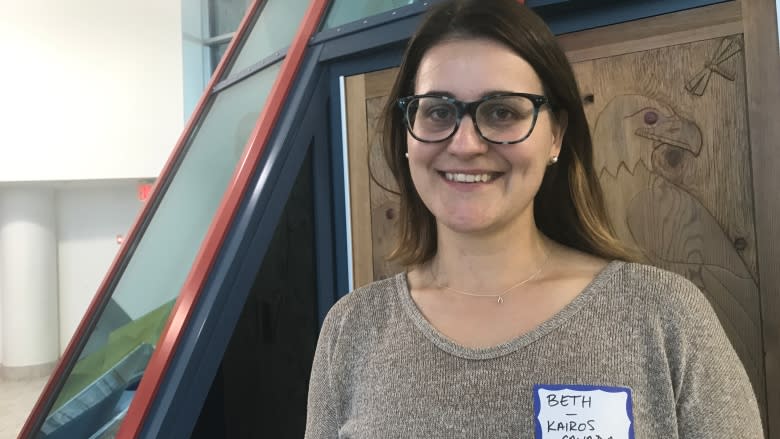Sask. watershed workshop dives into reconciliation
With devastating oil spills making headlines over the past two years — such as the Husky pipeline breach which dumped 225,000 litres onto the banks and into the water of the North Saskatchewan River in July 2016 — Beth Lorimer believes Regina deserved a watershed workshop.
About 50 people attended the Reconciliation in the Watershed workshop which took place at the FNUniv on Saturday morning in Regina.
"It's about listening to Indigenous voices so that we can Indigenize our perspective about how we live in relationship with all the other living things and the natural environment," said Lorimer, ecological justice program coordinator for KAIROS Canada.
In conjunction with the calls to action, the workshop outlined the impacts of resource development on watersheds, especially on First Nations. KAIROS Canada is an inter-faith coalition rallying for ecological justice, migrant justice and Indigenous rights and workshop coordinatiors also offered tips for residents to lessen impacts at home.
Deep impact
Regina lies in the Lower Qu'Appelle River Watershed, as part of the Qu'Appelle River basin, which stretches across southeastern Saskatchewan.
Dodie Ferguson has been speaking at events similar to Reconciliation in the Watershed for several years, because it hits close to home.
"All I have is hope. I'm a mother and a grandmother," said Dodie Ferguson, member of the Cowessess First Nation and its land and resources committee. "I have to continue hoping for my grandchildren."
Ferguson plans to help organize similar local events to help protect future generations.
"We need to look beneath surface water at the soil and ground because ultimately it all filters back down to those life-blood veins," she said.
KAIROS will continue to hold watershed workshops across Canada this year. Other host cities include both Halifax and Tatamagouche in Nova Scotia and London, Ontario.



